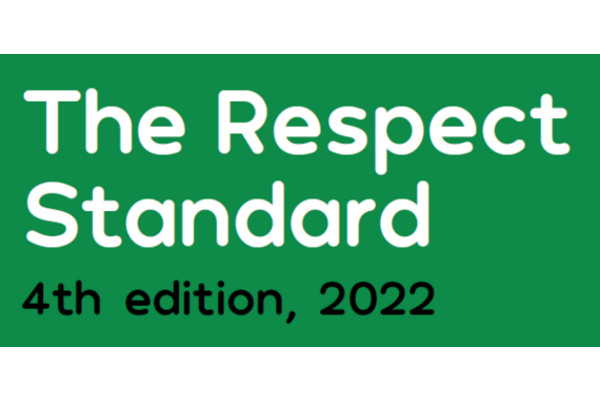Respect Principles
From the Respect Standard, 4th edition, 20221. Safety first - Do no harm
Organisations offer perpetrator interventions that prioritise the safety and freedom (Space for Action, Kelly 2003) for adult and child survivors. The provision of an Integrated Support Service or IDVA for survivors alongside the intervention for perpetrators is essential and reducing harm and risk must be at the forefront of all decision making. Intervention staff must also take all reasonable steps to ensure that they do not create additional risk and harm for survivors. This may mean not offering an intervention to someone where to do so could raise the risk.
2. Sex and gender informed approaches
Organisations take a sex and gender informed approach: they recognise that domestic abuse is disproportionately perpetrated by men and experienced by women in terms of degree, frequency and impact and that men’s violence against women is both a cause and consequence of inequality. They also recognise domestic abuse perpetrated by women against men and by/against LGBT+ people and that these require responses tailored to the needs of each group.
3. Sustainable change
Services match interventions to the risk, needs and capacity of perpetrators, offering the right service to the right people at the right time, to optimise the potential for a successful intervention.
4. Inclusive services, responsive to diverse needs
Organisations understand the profile of the local communities they serve and their service users’ intersecting and protected characteristics. They design services for marginalised and minoritised groups and remove barriers to engagement, so that services are accessible and inclusive and meet the needs of diverse service users.
Organisations are committed to employing a workforce that reflects the diversity of the communities they serve.
5. Highly skilled and supported workforce
Organisations have a well-trained and well-supported workforce and provide staff with ongoing professional development activities to fulfil their role and be culturally competent.
6. Ongoing monitoring and evaluation
Services monitor and evaluate the interventions they offer on an ongoing basis, so that they can evidence their effectiveness, impact and outcomes and help expand the knowledge base.
7. Commitment to coordinated multi-agency working
Organisations recognise that domestic abuse cannot be addressed by one agency alone and are committed to proactively contributing to and collaborating with partners, as part of a local coordinated, multi-agency response.





